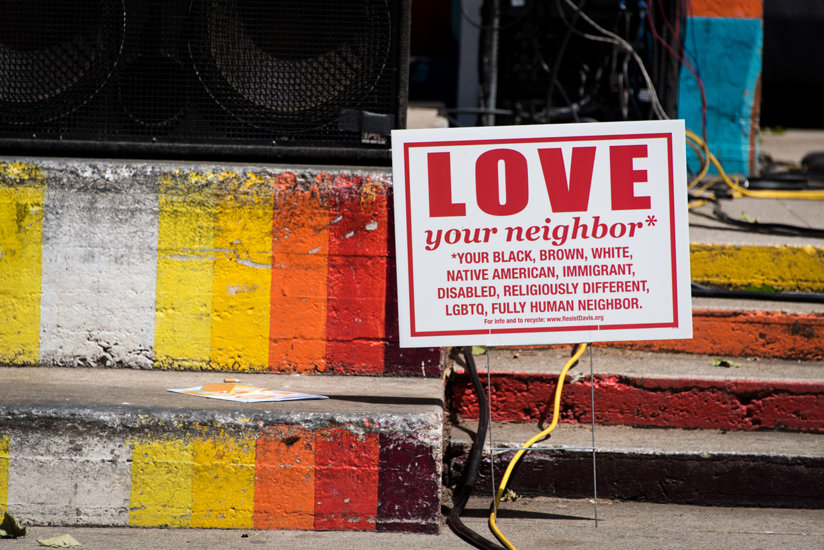
-
HOME
-
WHAT IS STANDOur Mission Our Values Our Help Contact
-
WHAT WE FIGHT FORReligious Freedom Religious Literacy Equality & Human Rights Inclusion & Respect Free Speech Responsible Journalism Corporate Accountability
-
RESOURCESExpert Studies Landmark Decisions White Papers FAQs David Miscavige Religious Freedom Resource Center Freedom of Religion & Human Rights Topic Index Priest-Penitent Privilege Islamophobia
-
HATE MONITORBiased Media Propagandists Hatemongers False Experts Hate Monitor Blog
-
NEWSROOMNews Media Watch Videos Blog
-
TAKE ACTIONCombat Hate & Discrimination Champion Freedom of Religion Demand Accountability
Garden State Politician Recants Anti-Muslim Hate, Embraces Tolerance
When a person embarks on a career in politics as a sworn-in representative of the people, he or she is bound to uphold and protect the best interests of those they now represent. That includes members of every faith—minority and majority.
If a politician instead demonstrates intolerance or bigotry they are most definitely to be held accountable.
Fortunately, some politicians recant after engaging in blatant hate speech—either out of sincere regret or through fear of damage to their reputation. Such is the case of New Jersey Senator-elect Edward Durr, who took his political opponent, the incumbent state senator, by surprise, winning the election with no former political experience.

In 2019, Durr sent out a tweet that read: “Mohammed was a pedophile! Islam is a false religion! Only fools follow muslim [sic] teachings! It is a cult of hate!”
It’s no surprise therefore that when he won the election in New Jersey’s 3rd district in November 2021, outrage and concern rippled through the state, which is home to more than 300,000 Muslims. The New Jersey chapter of the Council on American-Islamic Relations (CAIR-NJ) immediately denounced Durr’s anti-Muslim hate: “Islamophobes and other bigots should not be in policy-making positions impacting the lives of Americans of all faiths and backgrounds.” (Hear hear.)
When a person embarks on a career in politics, as a sworn-in representative of the people, he or she is bound to uphold and protect the best interests of those they now represent. That includes members of every faith—minority and majority.
Durr immediately apologized for his former slurs, stating: “If I said things in the past that hurt anybody’s feelings, I sincerely apologize.” He added: “I support everybody’s right to worship in any manner they choose and to worship the God of their choice. I support all people and I support everybody’s rights. That’s what I am here to do, work for the people and support their rights.” Following this public apology, Durr agreed to a meeting with state Muslim leaders from CAIR-NJ, on November 10. He apparently left that encounter enlightened and committing himself to “stand against Islamophobia.” Clutching a copy of the Quran, he further confided: “I think it was a very open discussion. We got… a sense of each other… I think that’s the real key to everything. As long as you know somebody, it’s hard to hate somebody, don’t you think?”
Durr has touched on a truth that applies to just about any walk of life. Sometimes, people who are brought up in a specific cultural, social, political or religious environment have trouble relating to, much less supporting, people who don’t resemble them. As Jim Morrison of The Doors famously sang: “People are strange when you’re a stranger.” But as soon as we break through that wall and find some familiarity with a person of another faith, culture or social background, our tolerance, respect and empathy immediately rise. At least that’s the way it works for most people.

So there is reason for hope. But there’s still much work to be done as slurs like those Durr originally employed are all too common, with other New Jersey officials recently caught publishing Islamophobic diatribes on social media, including members of the Toms River school board and the Raritan Township Committee. Some apologies, if offered up at all, have been read as insincere.
Similarly, it would be desirable that the “Durr Story” be repeated with, for example, certain individuals across the country who sent hate messages to Sadaf Jaffer, a Muslim woman who won a seat in the New Jersey senate during these same 2021 legislative elections (having served for two years as America’s first female Muslim mayor). She deserves the same respect as any other senator in the house. But headway has been made: in these same recent elections, in addition to Sadaf Jaffer’s win, a fellow Pakistani American woman, Shama Haider, was also voted into the senate, making the Garden State home to more Muslims in elected office than any other state.
In the wake of the recent United Nations International Day of Tolerance, the presence of Muslims in the Garden State’s legislative branch is a good example of planting seeds of understanding—the better to overpower and ultimately eliminate the weeds of hate and bigotry along with it. We can only hope that Durr’s and others’ collaboration with the Muslim members of their community will be a fruitful one and that it will set an example for other U.S. states and, beyond them, nations worldwide.









